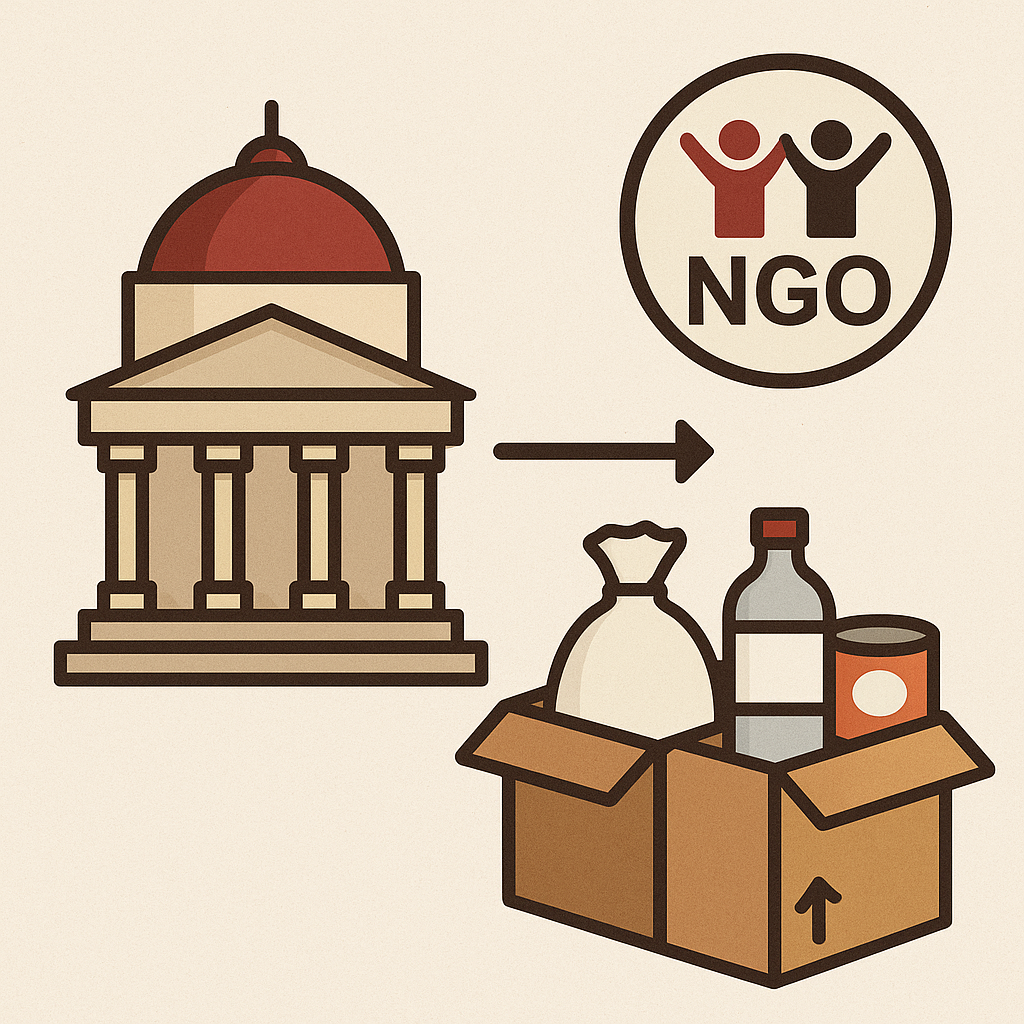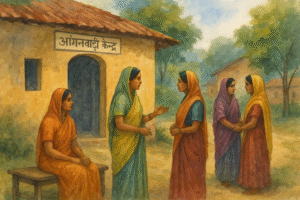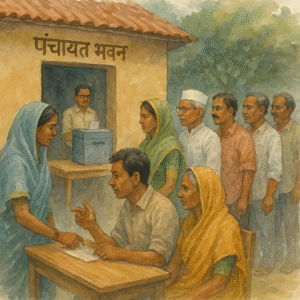Simplified Explanation of the Judgment
In a Public Interest Litigation (PIL) filed during the COVID-19 pandemic, the Patna High Court was called upon to address a critical issue: should civil society organizations (CSOs) and non-governmental organizations (NGOs) be formally allowed and integrated into disaster relief operations, especially when state mechanisms struggle to reach every affected individual?
The petitioner, an advocate appearing in person, highlighted the limitations faced by the Bihar government in providing essential relief during the pandemic and subsequent floods. She argued that, given the population size and logistical hurdles, the government alone was unable to ensure food, shelter, and essentials to all vulnerable individuals. The petition emphasized the willingness of various CSOs and NGOs to supplement government efforts but pointed out that they were often denied direct access to beneficiaries due to bureaucratic restrictions.
Key communications from NITI Aayog, issued in March and April 2020, were cited. These encouraged collaboration between state governments and civil society, including appointment of nodal officers for coordination. The petitioner further referred to global strategies, particularly from the World Health Organization (WHO) and the United Nations, urging countries to involve NGOs in pandemic responses.
The Bihar government responded that while it valued such cooperation, the communications from NITI Aayog were merely advisory and not binding. The government stated that it had already taken steps to engage NGOs, such as setting up helplines, appointing nodal officers, and creating online portals for voluntary registration. However, it maintained its prerogative to control relief operations, especially during the flood crisis, citing accountability and coordination concerns.
In its detailed judgment, the Patna High Court held that:
- The guidelines from NITI Aayog do not carry statutory force and are therefore not legally binding.
- While NGOs and CSOs do not have a legal right to be included in disaster operations, the principles of good governance, constitutional duties, and international norms strongly favor their inclusion.
The Court emphasized the role of participative governance and the vital contribution of civil society in humanitarian crises. Drawing upon Indian constitutional principles and international practices, it urged the state to collaborate with credible non-state actors, especially in reaching remote and vulnerable populations.
The judgment concluded by issuing specific directions to the Bihar government to enhance collaboration with civil society actors through standard operating procedures, public consultations, online platforms, and inclusion of NGOs in welfare policies and relief operations.
Significance or Implication of the Judgment
This judgment significantly reaffirms the democratic principle of participative governance. While it does not compel state governments to include NGOs by law, it strongly advocates their involvement for effective crisis management. For the public, this decision underscores that humanitarian efforts must be collaborative, particularly during large-scale emergencies. It also encourages state machinery to adopt transparent, inclusive, and accountable systems for relief operations.
For governments across India, this case sets a precedent emphasizing the value of structured partnerships with civil society to meet socio-economic needs, especially during disasters.
Legal Issue(s) Decided and the Court’s Decision with reasoning
- Are NITI Aayog’s communications binding on State Governments?
- Court’s Decision: No.
- Reasoning: NITI Aayog is a policy think tank without statutory authority. Its guidelines are advisory and not enforceable unless backed by legal provisions.
- Do CSOs and NGOs have a legal right to participate in disaster relief operations?
- Court’s Decision: No enforceable right exists.
- Reasoning: Though not a legal right, civil society involvement is constitutionally desirable and should be encouraged in the spirit of good governance, fundamental duties, and public interest.
- Can international norms guide domestic governance?
- Court’s Decision: Yes, where they align with constitutional values.
- Reasoning: International conventions, like WHO guidelines, though not binding, help interpret and strengthen fundamental rights under Article 21.
Judgments Referred by Parties (with citations)
- Poonam Verma v. Delhi Development Authority, (2007) 13 SCC 154
- Praneeth K v. University Grants Commission (UGC), 2020 SCC OnLine SC 592
- GJ Fernandez vs. State of Mysore, AIR 1967 SC 1753
Judgments Relied Upon or Cited by Court (with citations)
- PUCL v. State of T.N., (2004) 12 SCC 381
- Vishaka v. State of Rajasthan, (1997) 6 SCC 241
- R.D. Upadhyay v. State of A.P., (2007) 15 SCC 337
- K.S. Puttaswamy v. Union of India, (2017) 10 SCC 1
- Manoj Narula v. Union of India, (2014) 9 SCC 1
- Charan Lal Sahu v. Union of India, (1990) 1 SCC 613
- Bachpan Bachao Andolan v. Union of India, (2011) 5 SCC 1
- Sampurna Behrua v. Union of India, (2018) 4 SCC 433
- Rajesh Sharma v. State of U.P., (2018) 10 SCC 472
- National Campaign Committee v. Union of India, (2018) 5 SCC 607
Case Title
Parul Prasad v. State of Bihar & Ors.
Case Number
Civil Writ Jurisdiction Case No. 5609 of 2020
Citation(s)
2021(1)PLJR 140
Coram and Names of Judges
Hon’ble The Chief Justice Sanjay Karol
Hon’ble Mr. Justice S. Kumar
Names of Advocates and who they appeared for
- Ms. Parul Prasad – Petitioner (in person)
- Dr. K.N. Singh, ASG
- Mr. S.D. Sanjay, Sr. Advocate
- Mr. P.N. Shahi, AAG-6
- Mr. Patanjali Rishi, AC to AAG-6
- Mr. Ratnesh Kumar, CGC
Link to Judgment
https://patnahighcourt.gov.in/viewjudgment/MTUjNTYwOSMyMDIwIzEjTg==-ebvYJ0eL49w=
If you found this explanation helpful and wish to stay informed about how legal developments may affect your rights in Bihar, you may consider following Samvida Law Associates for more updates.








